A need for medication safety education.
Prescription medicines play a critical role in healthcare. We rely on medications to help us live longer, healthier lives, and prescription medications help millions of people do that daily. However, all medications possess risks when misused.
In 2007, OSU College of Pharmacy faculty Drs. Ken Hale and Nicole Kwiek recognized the troubling data emerging around the rise in drug overdose deaths involving prescription opioids. In addition, they noticed that medication misuse behaviors extended beyond prescription opioids and also included medications like prescription stimulants and sedatives. Amidst the public emergence of the opioid crisis, a broader epidemic of prescription drug misuse appeared to exist.
The medical and scientific communities define medication misuse behaviors as:
- Taking more or less of a prescription medication than that prescribed.
- Taking a prescription medication for a reason different than that prescribed.
- Sharing or taking someone else’s prescription medication.
Drs. Hale and Kwiek quickly recognized the role that pharmacists and community leaders could play in addressing this crisis through prevention education. Hence, Generation Rx was founded.
Educational programs, such as Generation Rx, play a critical role in promoting safe medication behaviors. They establish important knowledge and skills that individuals need to use medication safely. In fact, Generation Rx education aligns with the individual level of the Social Ecological Model. As a program, we encourage communities to complement Generation Rx education with other evidence-informed or evidence-based strategies that target the remaining levels, allowing communities to develop a comprehensive plan for addressing their local substance misuse concerns. Additional strategies may include raising public awareness, increasing the accessibility of treatment and healthcare resources, building collaboration between public and private groups, and developing support for individuals in recovery. Visit SAMHSA’s resource hub to learn more about substance use prevention and mobilizing your community.
Resources
The resources below provide additional information to further understand the issue across the continuum of care.
Medication Disposal Guidelines
- FDA: Consult the FDA’s Flush List and read their disposal recommendations
- EPA: What to Do With Unwanted Household Medicines. Flushing your medications should be a last resort – here are five other options for household medicine disposal.
- The National Association of Boards of Pharmacy has a Drug Disposal tool to help you locate the closest permanent drop box location near you.
Medication Take Back Days
Are you interested in hosting a medication take back event in your community? There are several things to consider when planning an event. Check out these medication disposal day guidelines created by Cardinal Health which offer general guidance for pharmacists, community members and other health professionals. The guidelines cover logistical matters and other requirements involved in coordinating medication disposal events in your communities.
Individuals can also participate in medication-take back days – use the Collection Site Locator provided by the Drug Enforcement Agency to find a site near you.
Online Pharmacies - Safety
FDA’s BeSafeRx: Resources for Consumers provides guidance to help you safely explore online pharmacy options. With the rise in illegally manufactured fentanyl found in counterfeit pills, it is critical that consumers follow the guidelines and practices identified in the linked resource when purchasing prescription medications online.
Overdose Prevention
Naloxone is an emergency antidote that helps restore breathing in opioid-related drug overdoses. Multiple pathways exist for accessing naloxone, including public distribution programs, purchasing naloxone as an over-the-counter medication, and acquiring naloxone through community or campus pharmacies. Visit the National Harm Reduction Coalition to find naloxone near you and learn about other harm reduction resources available in your state (e.g., fentanyl test strips, syringe access, etc).
Treatment
Do you or someone you know need help with a substance use disorder? The Behavioral Health Treatment Services Locator is an online source of information for people seeking treatment facilities in the United States or U.S. Territories for substance use disorder and/or mental health concerns.

